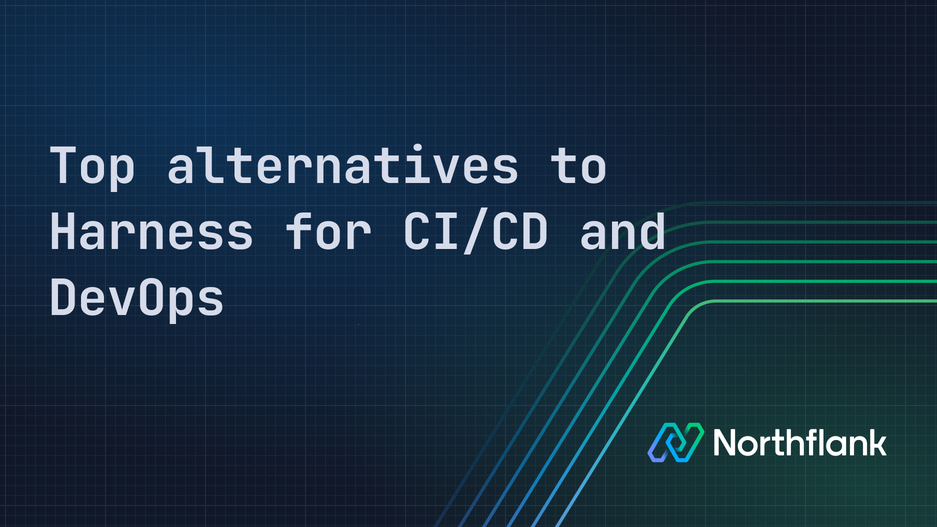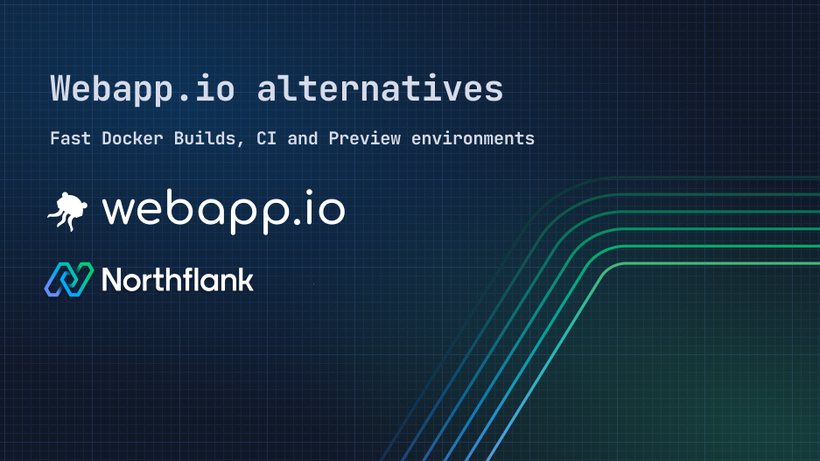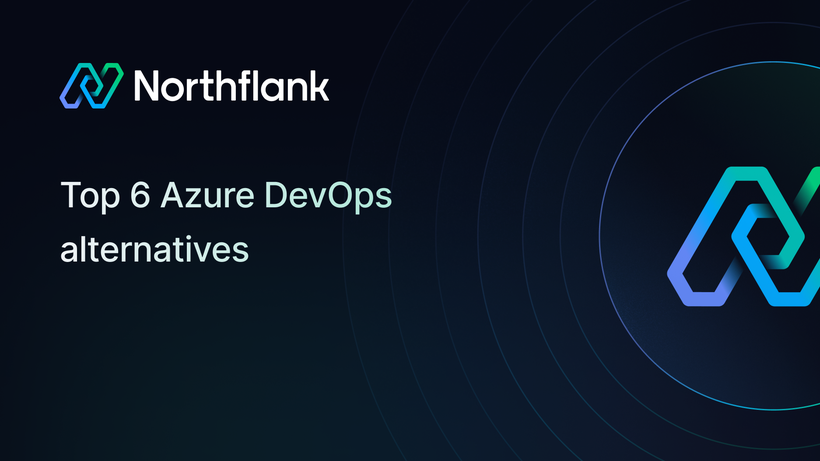

Top alternatives to Harness for CI/CD and DevOps
Continuous Integration and Continuous Deployment (CI/CD) are at the heart of modern software development, enabling faster and more reliable releases. Harness has become a big name in this space, offering automation, security, and cost-saving features. But does it work for everyone?
For some teams, Harness can feel like overkill—whether due to its price, complexity, or infrastructure limitations. Maybe you need something simpler, more customizable, or that fits better with your existing tools. The good news is, there are plenty of great alternatives out there.
In this article, we’ll dive into why teams are moving away from Harness, what to look for when choosing a CI/CD platform, and how the top alternatives compare.
Harness is an intelligent software delivery platform designed to simplify CI/CD pipelines, automate deployments, and integrate security, compliance, and cost optimization. It leverages AI and machine learning to streamline DevOps workflows, helping organizations reduce manual intervention and minimize deployment risks.
While Harness provides robust capabilities, it isn’t the perfect fit for every team. Some businesses find the platform expensive, complex, or limiting in terms of customization. As a result, many are evaluating other CI/CD solutions that offer similar functionality with different strengths.
There are several reasons why teams may look beyond Harness for their CI/CD needs:
Harness's pricing structure can be a challenge for startups and smaller teams. While it offers a powerful feature set, its cost may be prohibitive compared to open-source or lower-cost alternatives.
Harness offers a sophisticated automation engine, but some users find it difficult to set up and configure, especially if they lack DevOps expertise. Simpler, more intuitive alternatives can offer faster adoption and quicker deployment cycles.
Organizations with unique deployment strategies or specific infrastructure requirements may find Harness’s abstraction layer restrictive. Some teams need more granular control over their CI/CD workflows, which certain alternatives provide.
Harness is a proprietary platform, which may raise concerns about long-term dependency on a single vendor. Open-source or multi-cloud solutions offer more flexibility and control over infrastructure.
Teams using Kubernetes, AWS-native tools, or GitOps methodologies may prefer alternatives like Northflank that integrate more naturally with their infrastructure.
Before switching to another CI/CD tool, consider the following key factors:
Your chosen alternative should be easy to set up and manage. Look for modern solutions that provide user-friendly interfaces, intuitive configurations, and minimal overhead in managing pipelines.
CI/CD tools should integrate seamlessly with your existing stack, including GitHub, GitLab, AWS, Kubernetes, and other cloud services. A tool with extensive plugin support can help streamline your DevOps workflows.
Ensure that your alternative can handle your team’s growth. To optimize performance, a platform should support distributed builds, parallel execution, and auto-scaling capabilities.
If your team has specific deployment needs, look for flexible scripting tools, robust API support, and deep configuration options.
Security is critical in CI/CD. Consider platforms that provide role-based access control (RBAC), automated security scanning, secrets management, and compliance with industry standards.
Open-source tools can reduce costs, while cloud-based platforms may offer flexible pricing models. Evaluate whether the tool’s pricing aligns with your team’s budget and expected usage.
If you're looking for a quick comparison, here's a table to help you easily compare the top alternatives to Harness.
| CI/CD Tool | VCS Support | Ease of Use | Scalability | Hosting Options | Pricing |
|---|---|---|---|---|---|
| Northflank | GitHub, GitLab, Bitbucket | 5/5 | Auto-scaling | Cloud | Transparent, usage-based |
| Jenkins | GitHub, GitLab, Bitbucket | 3/5 | Manual scaling | Self-hosted, Cloud | Free (Open-source) |
| GitLab CI/CD | GitLab | 4/5 | Scalable runners | Self-hosted, Cloud | Free & Paid Plans |
| CircleCI | GitHub, GitLab, Bitbucket | 4/5 | Highly scalable | Cloud, Self-hosted | Usage-based pricing |
| AWS CodePipeline | GitHub, Bitbucket | 3/5 | Auto-scaling | AWS Cloud | Pay-as-you-go |
| GitHub Actions | GitHub | 4/5 | Auto-scaling | Cloud, Self-hosted | Free & Paid Plans |
Let’s take a closer look at some of the best CI/CD platforms that serve as strong alternatives to Harness.
Northflank is a CI/CD platform that’s optimized for Kubernetes-native and containerized applications. It’s designed to simplify the deployment pipeline, offering powerful automation while maintaining a focus on scalability, flexibility, and ease of use.
Northflank stands out with its deep integration into cloud-native technologies, particularly Kubernetes, making it ideal for modern, containerized workloads. Unlike some traditional CI/CD platforms, it doesn’t require complex configuration or manual scaling, allowing teams to quickly set up, scale, and automate their deployment processes without hassle.

Pros:
- Seamless Kubernetes integration
- Automatic horizontal scaling
- Built-in CI/CD and logging
Cons:
- Smaller community compared to Harness
Why Choose Northflank Over Harness?
- More advanced automation and CI/CD features.
- Greater flexibility in cloud provider selection.
- Kubernetes-native with built-in auto-scaling.
- Lower costs with transparent pricing models.
- Enterprise-grade security and compliance tools.
Jenkins remains one of the most popular CI/CD tools due to its flexibility and extensive plugin ecosystem. While it requires manual setup and maintenance, it’s a great option for teams that want full control over their pipelines.

Pros:
- Highly customizable with thousands of plugins
- Free and open-source
- Supports self-hosted and cloud deployments
Cons:
- Requires manual scaling
- Steeper learning curve for beginners
GitLab CI/CD is a natural choice for teams already using GitLab. It offers built-in CI/CD functionality, making it easy to integrate with repositories.

Pros:
- Seamlessly integrated with GitLab repositories
- Built-in security scanning and compliance tools
- Supports both cloud and self-hosted deployment
Cons:
- Can be resource-intensive for large projects
- Limited customization compared to Jenkins
CircleCI is designed for teams looking for a cloud-based CI/CD solution that’s easy to set up and scale.

Pros:
- Fast and efficient cloud-based builds
- Simple configuration using YAML files
- Strong integration with cloud services
Cons:
- Pricing can be high for large teams
- Limited self-hosted capabilities
AWS CodePipeline is a fully managed CI/CD service that integrates seamlessly with other AWS services, making it ideal for teams deeply embedded in the AWS ecosystem.

Pros:
- Deep integration with AWS services
- Fully managed with automatic scaling
- Pay-as-you-go pricing
Cons:
- Limited flexibility outside AWS
- Can be complex to configure for non-AWS users
GitHub Actions is a powerful CI/CD automation tool built directly into GitHub, making it an excellent choice for teams already using GitHub for version control. It allows developers to create custom workflows that automate building, testing, and deployment processes with minimal setup.

Pros:
- Seamless GitHub integration
- Flexible and customizable
- Rich marketplace of pre-built actions
- Scalable and secure
Cons:
- Limited outside GitHub
- Costly for larger workloads
- Complex workflows require experience
If you're looking for an easy-to-use, flexible, and cost-effective alternative to Harness, Northflank might be the solution you’ve been searching for. It simplifies CI/CD, especially for Kubernetes and containerized apps, without the complexity or high costs that some other platforms impose.
With Northflank, you can get up and running quickly, with automatic scaling and seamless integration into your existing stack. Its transparent, usage-based pricing makes it easy to scale without worrying about unexpected costs.
Why not give it a try? You can start for free and experience how CI/CD can be streamlined without the headaches. Check out the guides, browse the documentation, or just sign up and start building today.



